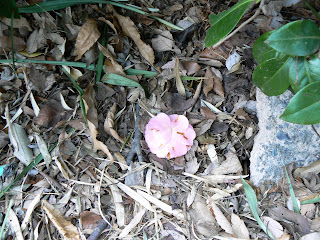The unsettling truth it conveys is unbearable to most, and that is why we so obsessively seek and stick to masks --- our safely diurnal contours and forms.
Hiding the fear of disclosure and, above all, of being disclosed.
Unveiled, blurred.
 |
| Francis Bacon, Study for Portrait (Looking Right), 1964 Source: http://www.wikipaintings.org/en/francis-bacon/study-for-a-portrait-looking-right |
When I look at you across the table, I don't only see you but I see a whole emanation which has to do with personality and everything else. And to put that over in a painting, as I would like to be able to do in a portrait, means that it would appear violent in paint. We nearly always live through screens - a screened existence. And I sometimes think, when people say my work looks violent, that perhaps I have from time to time been able to clear away one or two of the veils or screens.
---Francis Bacon, in David Sylvester, Interviews with Francis Bacon (London: Thames & Hudson, 1987).

























